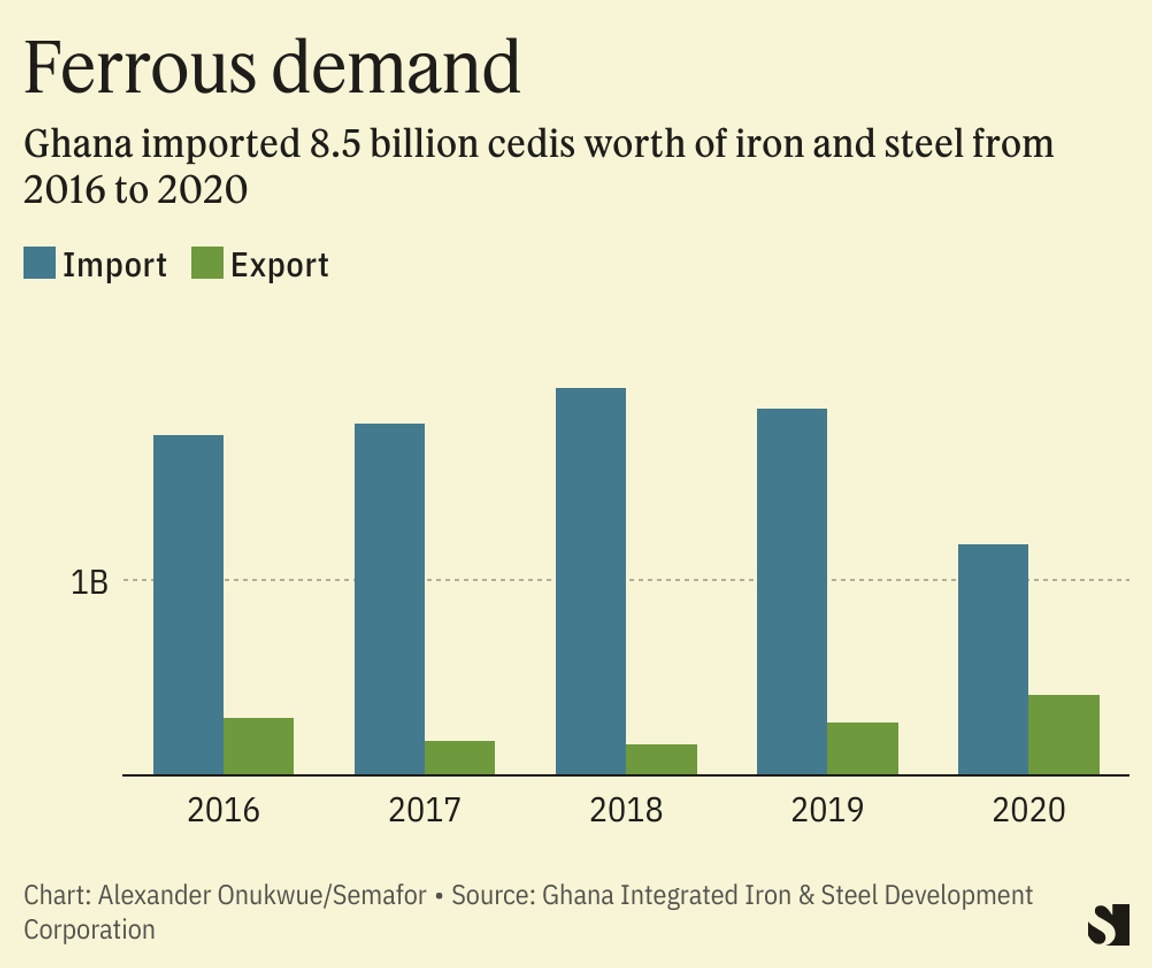 Eye Ubiquitous/Universal Images Group via Getty Images Eye Ubiquitous/Universal Images Group via Getty ImagesTHE NEWS ACCRA, Ghana — Ghana aims to process its iron ore locally by 2027 for steel production to boost economic growth, a government document seen by Semafor Africa shows. It is part of a continent-wide push to add more value to natural resources at home. The goal is stated in a report by the industry regulator Ghana-Integrated Iron and Steel Development Corporation (GIISDEC), together with the Ghana Geological Survey Authority (GGSA) mineral resources body. The document shows the government has signed agreements with eight companies to assess the country’s iron ore deposits. It also shows that none of the investors currently exploring the mineral will own concessions but rather mine within a fixed term, with the government prioritizing Ghanaian companies as key industry players. Nasurulai Abdullai, GIISDEC’s spokesman, told Semafor Africa authorities are in talks with other companies in addition to those that had already signed agreements. The decision not to export the mineral in its raw form comes as the West African nation — the world’s second largest cocoa exporter — seeks to diversify its economy from its reliance on exports of that crop, as well as gold and oil. “Value addition means creating employment, expanding the base of what you have and therefore creating a future that would be beneficial to the country,” Deputy mining minister George Mireku Duker told Semafor Africa. NANA OYE’S VIEW  Ghana’s plans for iron ore processing are part of the country’s push to take advantage of its natural resources to grow its economy instead of exporting raw materials. The thinking is that making steel domestically will literally provide the building blocks for international development while also creating jobs. The export of processed iron would also generate much needed dollar revenues and reduce Ghana’s steel imports. Several African countries are increasingly trying to process minerals at home — largely spurred on by the hope of tapping into the multibillion-dollar industry around electric vehicles. Africa Finance Corporation, a multilateral lender focused on infrastructure development, this month signed an expression of interest to provide $100 million in financing to develop a cobalt sulphate refinery in Zambia by the end of 2025. The substance is used in lithium-ion batteries. Zimbabwe last year banned raw lithium exports and encouraged local processing. Similarly, DR Congo has said it wants to move up the battery supply chain by processing more minerals locally. The goals of these governments will have to withstand negotiations with companies that offer the necessary expertise as well as the rigors of domestic politics. One of those realities, which we’ll watch play out in Ghana, is the fact that Akufo-Addo’s administration will be replaced after an election in December. And, of course, we don’t know which policies will be carried on by the next government. Throw in the fact that mining is notoriously tricky, often beset by delays, and it seems hard to predict how much of the stated plan will be rolled out. | 











